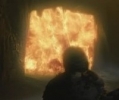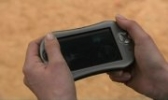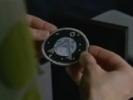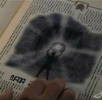“Sony has a futuristic sci-fi movie they’re looking to make.”
“Cigarettes in space?”
“It’s the final frontier, Nick.”
“But wouldn’t they blow up in an all oxygen environment?”
“Probably. But it’s an easy fix. One line of dialogue. ‘Thank God we invented the… you know, whatever device.'”
— Thank You For Smoking
Ah, technobabble. Also known as ‘phlebotonin’ if you’re a writer on Buffy the Vampire Slayer. I’m sure that to the casual viewer, all technobabble is equal. I know that when I watch House, I have no idea what they’re talking about half of the time, and it doesn’t bother me at all. As long as they don’t go on too long about it.
A big discussion blew up about technobabble, and Samantha Carter’s propensity for it, earlier in the year when we saw Stargate SG-1‘s wannabe epic, ‘Ripple Effect’. Interviews such as this one with Claudia Black have revealed that the SG-1 creative team are more focused on making sure that the plot is well-established than putting character moments into stories; not a bad thing in itself, but sometimes it feels like the show has become hyper-focussed on trying to make ultimately nonsensical science make complete, unassailable sense. Why bother?
‘Ripple Effect’ is a good case in point. For a parallel-universe episode to spend a quarter of its length on making sure that their universe jumping plan was explained to the letter seems peculiar for a show clearly targeted at regular science fiction viewers. On occasions, like in this season’s ‘Insiders’, it almost feels like background characters are there to say what the writers think internet fans are going to pick holes in. “But what about that device in season four that did this?” “Doesn’t that contradict season six, episode twelve?” If the characters are going to have mind-numbing debates on the internal continuity of the show on screen, what does that leave the fans to do?
Compare this to Doctor Who, which cops a lot of flak amongst its fans for doing exactly the opposite. In ‘The Idiot’s Lantern’, an alien intelligence went about through televisions, sucking the faces off people. The Doctor’s plan involves taping the consciousness on a videotape, but because it isn’t divulged until later, the climactic scenes become rather confusing. Oh no! Random thing has gone wrong! Oh yay! Random thing has been fixed! Phew!
This sort of thing would probably be over the head of Joe Normal regardless, just like the big, dramatic arguments about potential cures in House are only exciting to me because everyone’s acting like they should be, rather than because I understand what causes which symptoms. But for a sci-fi audience, just a little touch of technobabble can make them feel a lot more involved.
Technobabble has its place. Economically used, to smooth the discrepancies between the real world and the fictional world, and to ease the objections of people who actually know something about the science you’re fudging. If you’re Douglas Adams, not that anyone is these days, it can even be almost poetic. I don’t think it’s offensive to non-geeky viewers, but by the same tack, I think in many cases, especially Stargate‘s, large swathes of it become about satisfying Stargate nerds as opposed to science nerds. That’s when it becomes a mess — because let’s face it, the only people who give a crap are probably going to find a hole in it anyway.


















